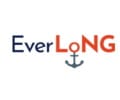Pioneering ship-based carbon capture (SBCC) demonstration initial results very promising

The EverLoNG SBCC prototype developed in the Netherlands by Carbotreat was installed on board the SEAPEAK ARWA, a LNG-powered carrier chartered by TotalEnergies, in September 2023.
This major milestone marked the first deployment anywhere of a ‘full-chain’ on-board system comprising capture, liquefaction and storage facilities.
This first testing campaign, which concluded mid-February 2024, focused on the performance of the capture system. It ran for over 1,000 hours during which the unit captured up to 250kg of CO2 per day.
Initial results are very promising, showing that capture rates of up to 85% are achievable. With further system optimisation to come, researchers are confident of more.
As well as assessing the impact of SBCC on the ship’s infrastructure and emissions, EverLoNG researchers are studying the effects of motion on CO2 capture rates and of exhaust gas impurities on capture solvent performance.
With a dedicated operator on board to oversee operation of the system, the prototype and vessel designs also enable remote perfor-mance monitoring and supervision from shore. This enables a safer and more efficient learning campaign that is providing real-time data that will be shared publicly.
A public webinar on the first testing campaign will follow soon.
Following the SEAPEAK ARWA trial , the SBCC unit will be removed and installed on board the SSCV Sleipnir from Heerema Marine Contractors, where a second campaign of around 500 hours will take place.
The second campaign will see the full CCUS chain in operation. The captured CO2 will be stored on board as a liquid in a container. The container will then be offloaded, and the CO2 transported to an industrial site for utilisation, or stored permanently in the geo-logical subsurface.
EverLoNG project coordinator, Marco Linders of TNO, said: “This first testing campaign really is an example of the EverLoNG pro-ject partners pulling together to make things happen. The initial results from the capture unit are very promising and we know that there is more to come. Both this and the second campaign will be important milestones in getting closer to making SBCC a com-mercial reality. The need to decarbonise the maritime sector is most pressing and there quite simply is no time to waste.”
Source: EverLoNG
